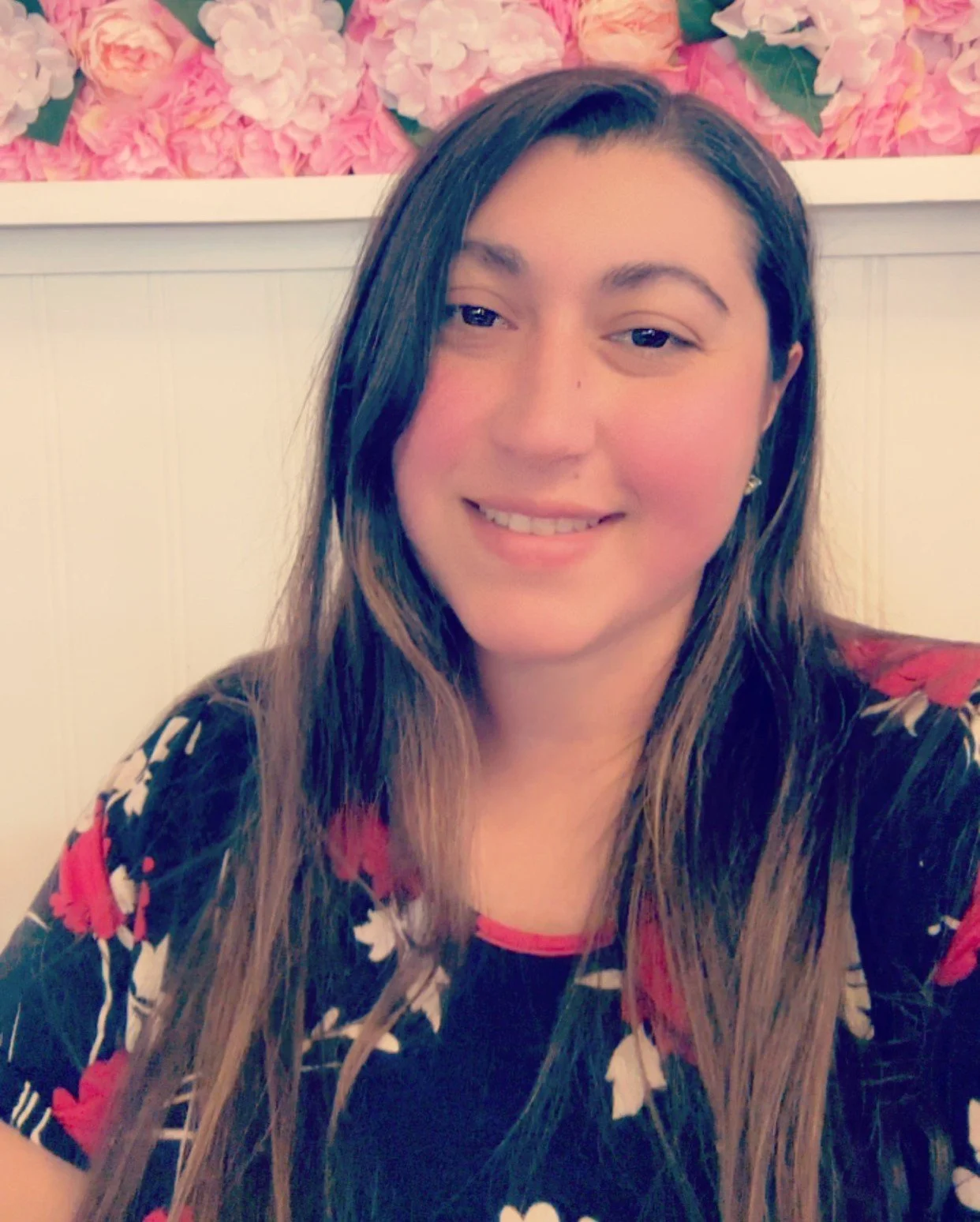Welcome to
Bodnar & Blaha
Psychological Assessment & Wellness

We are committed to providing
effective, empowering, evidence-based psychological support to families,
including
psycho-educational testing
& outpatient therapy.
We’re Pleased to Meet You!
At Bodnar & Blaha, we provide evidence-based, compassionate, and professional psychological assessment and treatment that is tailored to the unique needs of every person and family in a multiculturally and LGBTQIA-inclusive environment. To learn more about the accessibility of our offices and services, please contact us.
Who We Are
-
Dr. Bodnar grew up in Baltimore City enjoying the things that make living here unique—Berger Cookies, sledding on "Secret Hill", the holiday lights of Hampden, and Faidley's crabcakes are some personal favorites.
She attended Friends School of Baltimore and completed her undergraduate degree at Colgate University. She went on to earn a Ph.D. in Clinical Psychology from American University in Washington D.C. and completed predoctoral and postdoctoral training in Pediatrics at the Johns Hopkins School of Medicine and the Kennedy Krieger Institute. She then worked in the Kennedy Krieger Behavior Management Clinic and Neuropsychology Department.
Dr. Bodnar specializes in comprehensive assessment services designed to identify individual strengths, as well as determine the best interventions to support areas of need. Data from the assessment process is also used to clarify diagnoses and aid in treatment planning. Dr. Bodnar frequently assesses individuals with Specific Learning Disabilities, ADHD, and Anxiety, as well as OCD, Tic Disorders, Autism Spectrum Disorder, and Gifted or 2E profile students.
She also works with a small number of therapy clients using Cognitive Behavioral Therapy (CBT), Exposure and Response Prevention (ERP), and Behavioral Parent Training approaches.
-
Born in Phoenix, Arizona, Dr. Blaha fell in love with Baltimore when she moved here as an undergraduate at Johns Hopkins University, drawn to the beautiful seasons, delicious food, wonderful museums, and above all the strength and heart that make makes Baltimore distinct from other cities.
Following completion of her bachelor's degree at Hopkins, Dr. Blaha earned her doctorate in Clinical Child Psychology at St. John's University in Queens, New York, followed by a postdoctoral fellowship at NewYork-Presbyterian Hospital and the Weill Cornell Medical College. She then took a staff psychologist position at McLean Hospital's Anxiety Mastery Program in Boston with an appointment as an instructor in psychology at Harvard Medical School. During her time at McLean, Dr. Blaha developed and launched the McLean School Consultation Service with her colleagues.
After relocating for the final time to Baltimore, Dr. Blaha held a position as a per diem psychologist at Mt Washington Pediatric Hospital and taught an advanced seminar on clinical psychology as a lecturer at Goucher College.
In therapy, Dr. Blaha's focus is supporting children, adolescents, young adults, and families who are struggling with Anxiety and related disorders, including Depression, OCD, Tic Disorders, and Post-Traumatic Stress. Dr. Blaha utilizes evidence-based practices, including Cognitive Behavioral Therapy (CBT), Exposure and Response Prevention (ERP), Dialectical Behavior Therapy (DBT), Acceptance and Commitment Therapy (ACT), and Mindfulness techniques, tailoring these strategies to meet each individual's unique needs.
-
Dr. Julie Grammatico grew up in Connecticut and eventually traded her small-town roots for Charm City. She earned her Bachelor’s, Master’s, and Doctorate (Psy.D.) in Clinical Psychology from Loyola University Maryland, where she fell in love with Baltimore and developed her passion for working with children, adolescents, and families. Dr. Grammatico completed her predoctoral internship at Mt. Washington Pediatric Hospital, gaining extensive experience supporting children and families navigating emotional, developmental, and complex medical challenges.
She provides both assessment and therapy services for children, teens, young adults, and families. She has a particular passion for psychological evaluations related to learning differences and autism spectrum concerns. Her assessment process is designed to identify individual strengths, clarify diagnoses, and offer practical, personalized recommendations to support growth at home, in school, and in the community. In therapy, Dr. Grammatico works with clients experiencing anxiety, depression, medical stress, and transitions in school or family life. Her approach is warm, collaborative, and grounded in evidence-based practices. She often integrates Cognitive Behavioral Therapy (CBT), Acceptance and Commitment Therapy (ACT), and Motivational Interviewing. Dr. Grammatico is committed to creating a supportive, inclusive therapeutic space where clients feel understood and empowered.
-
Saadya Barron has been an Executive Assistant and Administrator for more than 15 years. She has worked with large corporations, nonprofits and small businesses. While working and caring for her family she earned her MBA, graduating Summa Cum Laude.
Saadya understands how important customer service is and treats our clients with respect and empathy, ready to answer questions and provide solutions. Saadya is always happy to assist with any needs or concerns.
Our Approach
-
Our practice is committed to utilizing evidence-based practices to maximize the likelihood that our clients and their families benefit from treatment. These therapeutic approaches have been extensively evaluated through peer-reviewed research. Clients and families are encouraged to ask questions about the types of therapy that might be best for them and how their clinician plans to apply evidence-based practices in their treatment.
Types of evidence-based therapy we use are:
Cognitive Behavioral Therapy (CBT)
Exposure and Response Prevention (ERP)
Behavioral Therapy and Behavioral Parent Training
Dialectical Behavior Therapy (DBT)
Acceptance and Commitment Therapy (ACT)
Mindfulness
Motivational Interviewing (MI)
-
Our practice’s assessments are tailored to identifying individual’s strengths and areas where they may benefit from additional supports. These assessments can help clarify diagnoses, including:
Specific Learning Disabilities (SLD)
Attention-Deficit/Hyperactivity Disorder (ADHD)
Anxiety Disorders
Obsessive Compulsive Disorder (OCD)
Tic Disorders
Autism Spectrum Disorder
Gifted or 2E Profile Students
In therapy, our practice focuses on the treatment of internalizing disorders. These include:
Anxiety Disorders
Depression
Obsessive Compulsive Disorder (OCD)
Trauma and Post-Traumatic Stress Disorder (PTSD)
Tic Disorders
Body Focused Repetitive Behaviors (BFRBs)
-
The assessment process includes a series of meetings. The process starts with a parent or caregiver intake. During this meeting we thoroughly discuss the presenting concern, goals for the evaluation, and background information/history. We will also discuss whether to involve teachers, tutors, or other professionals in the evaluation process.
The next step of the process is the testing sessions. The testing measures and approach are tailored specifically to the needs identified in the intake. Testing can be lengthy and is often split across days. Most assessments include evaluation of intellectual function (reasoning and problem solving), attention, working memory, processing speed, visuomotor skills, learning, memory, executive function, academics, and emotional and behavioral functioning.
Once testing is completed, a feedback session is conducted with parents or caregivers to review the findings and discuss recommendations. A child-centered feedback is offered once parents have completed the first feedback session. Each family receives a written report with the findings and recommendations of the assessment.
-
The purpose of therapy is to achieve sustainable emotional, psychological, and behavioral wellness by helping clients meet their personally-tailored treatment goals. Throughout evaluation and treatment, we work collaboratively with clients and their families. We are straightforward in our recommendations, and we always welcome discussion of clients' concerns or questions related to our treatment approaches.
Therapy begins with a diagnostic evaluation in which a client, their family, and their clinician will discuss goals for treatment and assess the fit between client and clinician.
If therapy is begun following evaluation, therapy sessions are generally scheduled for 45-50 minutes once per week. The appropriateness of longer or more frequent sessions based on a client's treatment goals can be discussed at any point, and longer or more frequent sessions may be scheduled if needed.
To ensure progress in treatment and to be consistent with evidence-based practices, we encourage clients and their families to actively work toward their treatment goals in sessions as well as their lives outside of sessions.
Services We Offer
We are out of network providers. We can provide invoices that can be submitted to insurance for reimbursement at out-of-network provider rates.
Possible CPT codes for psychological testing include 96130, 96131, 96136, and 96137.
Possible CPT codes for therapy include 90791 and 90834.
Assessment Services
Therapy Services
Contact Us
Interested in working together?
Please fill out our contact form and we will be in touch shortly.
You can also reach out to our client coordinator, Saadya Barron, by email at saadya@drbbodnar.com or by phone at (410) 343-9989.
We’re looking forward to meeting you!







